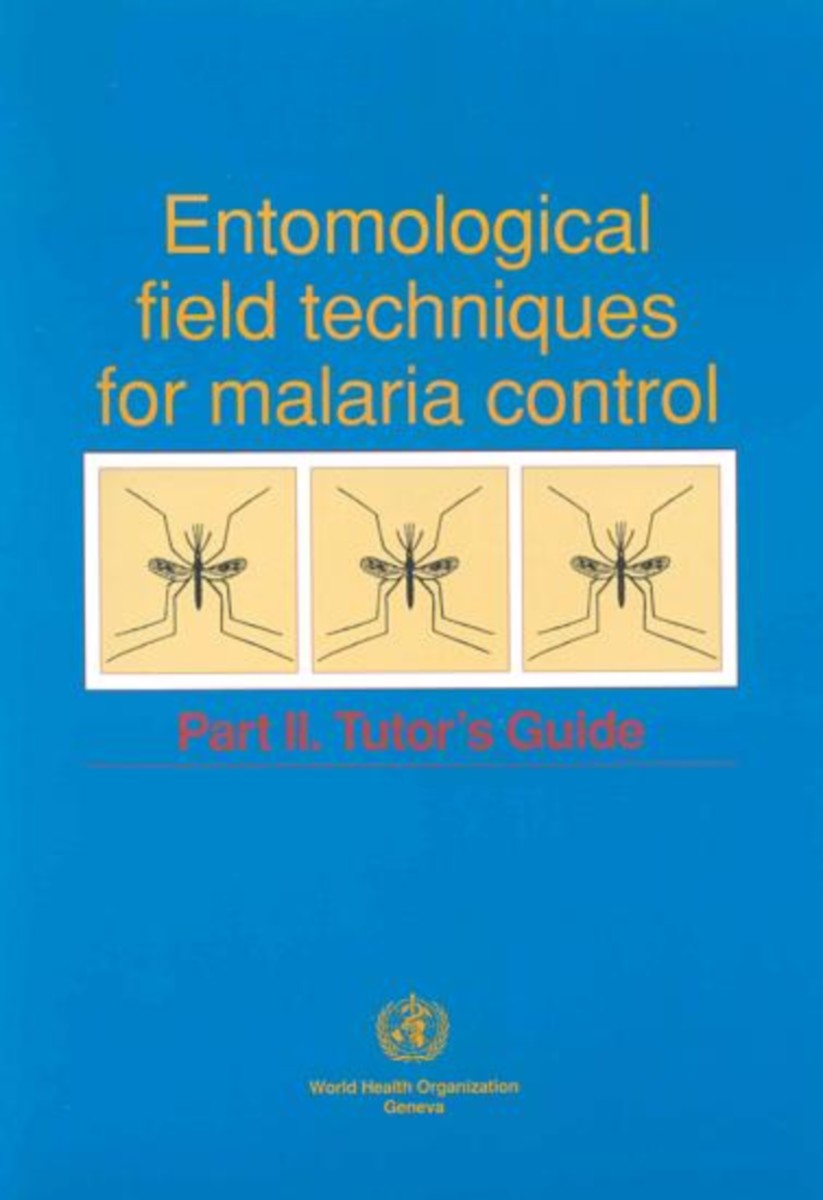Entomological Field Techniques for Malaria Control
Part II: Tutor's Guide
- Publisher
World Health Organization - Published
1st June 1992 - ISBN 9789241544405
- Language English
- Pages 54 pp.
- Size 10.5" x 11.25"
A practical training module on entomological field techniques for malaria control presented in two separately bound parts. The first, addressed to learners, provides step-by-step instructions in the field, and work needed to secure comprehensive information about the mosquito population in a given area. Information is presented in a series of 13 illustrated learning units, moving from the simplest collecting techniques that can be practiced in the laboratory to more sophisticated procedures that must be undertaken in the field. Techniques covered include hand collection methods, indoor collection after pyrethrin spraying, direct catches of mosquitoes from animal and human bait, and collection of larvae and pupae from breeding sites. Other units help readers learn how to identify species at all stages of the life cycle, keep accurate records, and preserve and transport specimens under strictly controlled conditions. The need to gain the cooperation of the community is also thoroughly explained. The second part, addressed to tutors, offers practical advice on the organization and running of training courses. Like the first part, the Tutor's Guide is divided into a series of learning units with clearly specified learning objectives. Information is provided on the equipment needed for teaching a particular topic, on demonstrating a particular technique, and on any support services that may be required. Each unit offers guidance on appropriate teaching methods with more detailed suggestions supplied in an annex. The book also provides advice on the assessment of learners and on how to give them feedback on their progress.
World Health Organization
World Health Organization is a Specialized Agency of the United Nations, charged to act as the world's directing and coordinating authority on questions of human health. It is responsible for providing leadership on global health matters, shaping the health research agenda, setting norms and standards, articulating evidence-based policy options, providing technical support to countries, and monitoring and assessing health trends.


